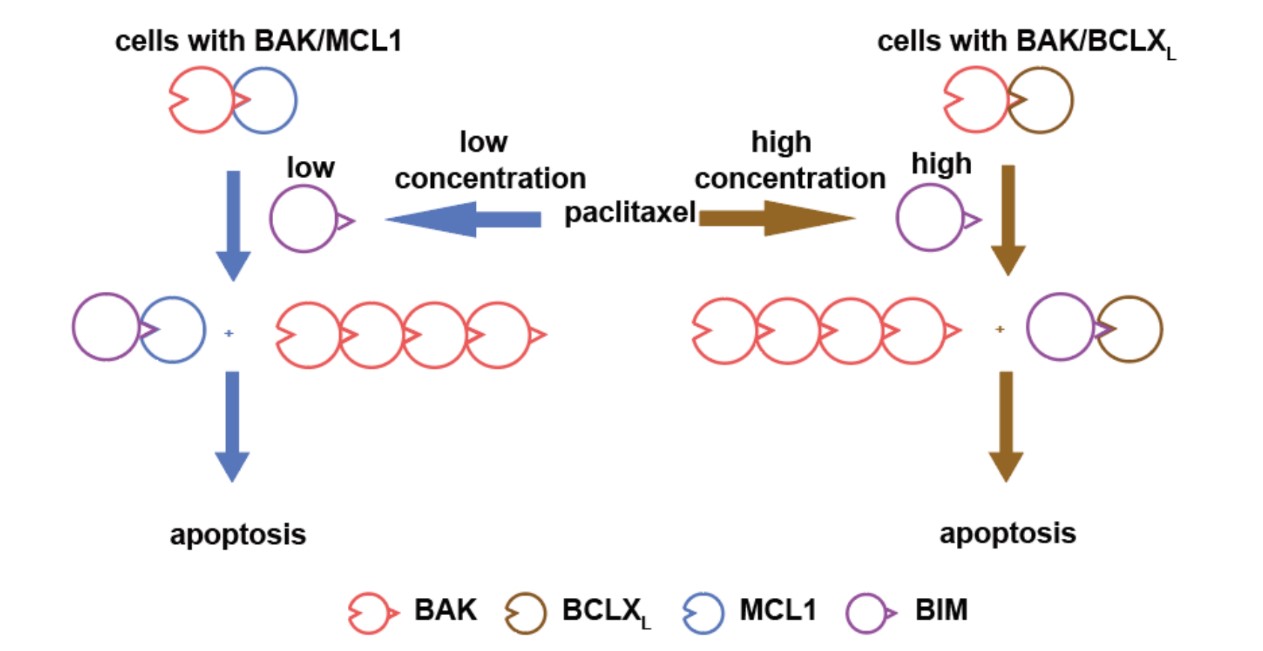
The incidence of ovarian cancer ranks third among gynecological tumors. Ovarian cancer is currently treated with traditional chemotherapeutics, including platinum drugs and paclitaxel, which are not very efficient, and the anti-tumor drug sensitivity prediction can effectively improve the quality of life or life cycle of patients. Currently a variety of methods based on genetic genes, in vitro drug screening, and PDX models have been applied to predict the susceptibility of anti-tumor drugs
Recently, a team led by Prof. DAI Haiming from Hefei Institutes of Physical Science (HFIPS), Chinese Academy of Sciences (CAS), has made new progress in the prediction of ovarian cancer treatment drug sensitivity.
The result has been published on Cell death & disease.
"According to the activation and interaction status of BAK in cell, we found that the sensitivity of blood and lymphoma tumor cells to BH3 analogs can be predicted," said LI Yunjian, first author of the paper, explaining the researches they have conducted before, “so we took ovarian cancer as the research object, and analyzed the relationship between the state of BAK in tumor cells and the sensitivity of the tumor to traditional chemotherapeutics."
In this work, the team found that BAK/MCL1 complex in tumor cells can predict the sensitivity of paclitaxel, MCL1 inhibitors, and their combination. Further studies on PDX models and animal experiments also illustrate the predictive effect of the BAK/MCL1 complex.
The detection of BAK/MCL1 complex in tumor cells has potential clinical application value.
The research was supported by the Hefei Cancer Hospital of the Chinese Academy of Sciences, the Mayo School of Medicine, the Second Affiliated Hospital of Anhui Medical College, and the University of Science and Technology of China. The National Natural Science Foundation of China, the Anhui Medical University, and the Institute of Health funded the research.
Link to the paper: Constitutive BAK/MCL1 complexes predict paclitaxel and S63845 sensitivity of ovarian cancer

Possible mechanism of BAK/MCL1 cell sensitivity to paclitaxel (Image by LI Yunfeng)
Contact:
ZHAO Weiwei
Hefei Institutes of Physical Science (http://english.hf.cas.cn/)
Email: annyzhao@ipp.ac.cn